Features
People’s continued trust in govt. must not be in vain
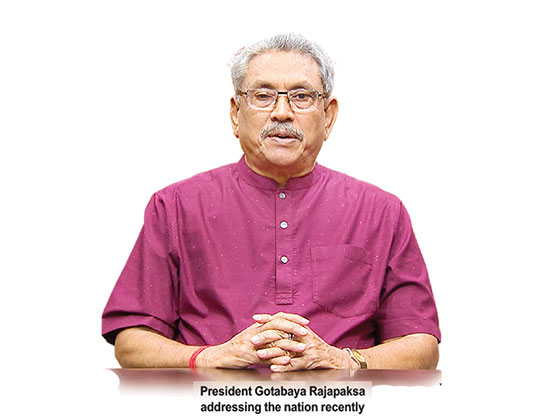
by Jehan Perera
In his address to the nation a year after winning the presidential election, President Gotabaya Rajapaksa said, “After I came into power, I appointed suitable officials in charge of the security apparatus of the country and gave them the required authority to carry out their responsibilities without any compromise. The intelligence services that had collapsed in the past were restructured and revitalized. Accordingly, we have managed to control the possibility of a resurgence of extremism in any form. A very effective and robust programme has been implemented to control the drug menace. There is no room anymore to engage in drug trafficking or operate the underworld from inside of prison cells as in the past. People of this country no longer have reasons to live in fear of underworld gangs, extortionists and racketeers.”
The budget debate taking place at this time is when the country has suffered a setback in its efforts to keep the Covid pandemic at bay. There is increasing criticism being voiced especially in the social media and civil society at the government’s utilization of the military at the expense of civilian leadership in meeting this health challenge. The increase in the military budget and the diminished health budget in the context of the enormous increase in the budget deficit is indicative of the government’s priorities. The military is playing an increased role in civilian affairs, not only leading the battle against the coronavirus but also in terms of administrative presence in the government bureaucracy, with retired military personnel being deployed to positions of leadership. This seems to reflect the President’s personal faith in the military forces he served both as a combat officer and later as Defence Secretary.
The increasing criticism of the government in the social media which is outside of government control indicates disillusionment of sections of the intelligentsia who utilize the social media. There are criticisms from both extremes, which suggests that the government is not being sufficiently Sinhala Buddhist in its orientation to some sections while being too much identified with one community to the exclusion of those of other communities. President Gotabaya Rajapaksa has answered these criticisms in his recent address to the nation. He stated that “The best yardstick of the success or failure of mine is the public opinion and not the organized propaganda spread by political opponents on social media platforms.” Anecdotal evidence suggests that the president’s popularity continues to be high at the community level in the Sinhala Buddhist heartland and possibly elsewhere as well.
FIELD ANECDOTES
This past weekend while the budget was being debated in Parliament there was a meeting on peacebuilding in Kandy organised by the Association of War Affected Women (AWAW) with the participation of civil society representatives and university academics. The main theme of discussion was to assess the peace processes of the past and to generate ideas that would support a nationally-driven reconciliation process. One of the significant proposals to arise out of the meeting was for the participants to make a joint submission to the Expert Committee on Constitutional Reform appointed by the government. The importance of a new constitution in the post-war context is that it will define the powers of government at the national and sub-national levels which is important to mitigate the long standing conflicts and tensions between the different ethnic and religious communities.
During the breaks for lunch and tea at the meeting on peacebuilding in Kandy some of the participants discussed the situation in the surrounding villages with the hotel staff who said that their villages continued to support the government strongly. They said that the President was popular and their hope was strong that he would make a difference where other leaders had failed. They also spoke positively of the role of the military and especially of the Army Commander General Shavendra Silva and the leadership they saw him giving to the Covid containment drive and the news briefings he gave. This positive impression of the role played by the military and the popular Army Commander may aid the government to make the military more representative of Sri Lanka’s ethnic and religious diversity by recruitment of more minorities.
On the way back to Colombo we stopped at a dilapidated roadside shop to buy fruit especially the pink jambola that is difficult to find in Colombo. While making our purchases we asked the shop owner what he thought of the current situation. He said that business was down as few passing vehicles stopped to buy anything as they used to in the past due to the Covid threat. When I asked him what he thought of the government, he said that he had confidence in the President. The other politicians I specifically asked him about did not seem to command his confidence in the manner the President did. When I asked him about the role played by the military his face lit up and he said he believed in General Shavendra Silva. He said that if the previous government had been in power, there would be tens of thousands of Covid deaths by now. These may not be factual statements as leaders of the opposition parties urged a lockdown even before the government implemented one. But such statements indicate the state of mind of the people at the present time.
Not wanting to lose this opportunity to tap into local knowledge, I asked my discussant whether he feared the white vans that abducted people in the past would make their reappearance. He did not seem to grasp the significance of the white van to those who showed political opposition to the government or to those who had become its victims. He said he had no such fears as the government was catching all the criminals and drug pushers and putting them into jail. He compared this to the situation under the previous government, and said that they had used the criminals and drug pushers to do their dirty work and let them roam about freely. This is anecdotal evidence of continuing strong support for the President’s policies and belief in his sincerity.
REDUCED HATREDS
One of the positive features of the past year, since the election of President Rajapaksa, has been the reduction if not absence of any anti-minority riot and the diminished hate speech against minorities in the media. This has come as a relief to those who are ethnic and religious minorities. Both the presidential and general elections were polarizing ones in which primeval ethnic and religious fears were mobilized by the contesting politicians with backing from sections of civil society, professionals and the media. Interestingly those who were at the forefront of the ruling party’s nationalist campaign during the elections, which benefited both the president and the government, are now much less visible. Indeed they seem to be subdued and there are rumours that due to their disenchantment they may be considering new political alliances.
It is noteworthy that in his speeches President Gotabaya Rajapaksa has frequently reiterated that he will ensure justice and equal treatment to all sections of the people while reiterating the reality that his victory at the presidential election was due to the votes of the Sinhala Buddhist ethnic and religious majority. However, he has been taking pains to correct any adverse fallout of his statements that affirm that he is concerned and taking actions to support one set of communal interests at the expense of equity and fairplay to citizens. In his address to the nation last week the President said that “An administration that protects the rights of all citizens regardless of racial or religious differences will be established during my tenure.”
One of the key proposals made at the meeting in Kandy was to establish a Pluralism and Diversity Commission on the lines of the independent commissions that were established under the 17th and 19th Amendments to the constitution but with more powers to ensure that all communities and all religious were treated equitably so that they would not feel alienated. This was an idea that had been broached at a national inter-religious conference organised by the National Peace Council (NPC) in 2018 at which a Pluralism Charter was developed and ratified by the participants. This charter was the outcome of three years of consultations with multi religious and multi ethnic communities mobilized through work at the ground level. It reflected the need for a shift in thinking to one in which equal rights, equal opportunities and equal protection become the norm for each and every citizen. This is a proposal that will be made to the Expert Committee on Constitutional Reform whose deadline is November 30.
Features
Rebuilding Sri Lanka for the long term
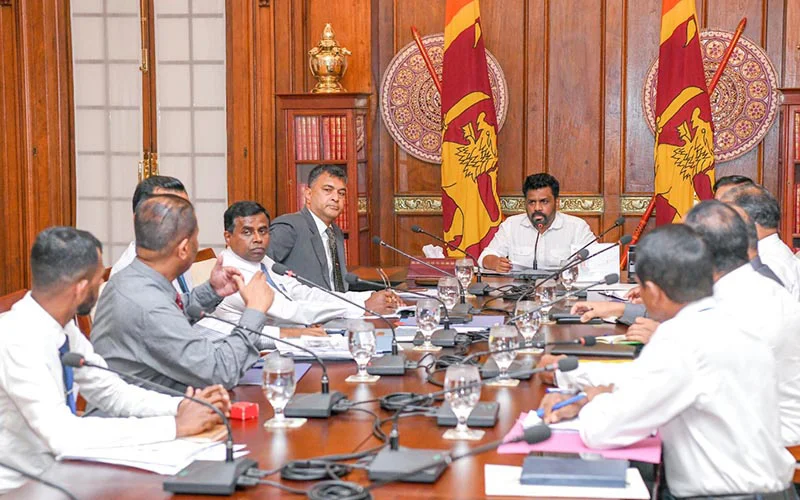
The government is rebuilding the cyclone-devastated lives, livelihoods and infrastructure in the country after the immense destruction caused by Cyclone Ditwah. President Anura Kumara Dissanayake has been providing exceptional leadership by going into the cyclone affected communities in person, to mingle directly with the people there and to offer encouragement and hope to them. A President who can be in the midst of people when they are suffering and in sorrow is a true leader. In a political culture where leaders have often been distant from the everyday hardships of ordinary people, this visible presence would have a reassuring psychological effect.
The international community appears to be comfortable with the government and has been united in giving it immediate support. Whether it be Indian and US helicopters that provided essential airlift capacity or cargo loads of relief material that have come from numerous countries, or funds raised from the people of tiny Maldives, the support has given Sri Lankans the sense of being a part of the world family. The speed and breadth of this response has contrasted sharply with the isolation Sri Lanka experienced during some of the darker moments of its recent past.
There is no better indicator of the international goodwill to Sri Lanka as in the personal donations for emergency relief that have been made by members of the diplomatic corps in Sri Lanka. Such gestures go beyond formal diplomacy and suggest a degree of personal confidence in the direction in which the country is moving. The office of the UN representative in Sri Lanka has now taken the initiative to launch a campaign for longer term support, signalling that emergency assistance can be a bridge to sustained engagement rather than a one-off intervention.
Balanced Statement
In a world that has turned increasingly to looking after narrow national interests rather than broad common interests, Sri Lanka appears to have found a way to obtain the support of all countries. It has received support from countries that are openly rivals to each other. This rare convergence reflects a perception that Sri Lanka is not seeking to play one power against another, and balancing them, but rather to rebuild itself on the basis of stability, inclusiveness and responsible governance.
An excerpt from an interview that President Dissanayake gave to the US based Newsweek magazine is worth reproducing. In just one paragraph he has summed up Sri Lankan foreign policy that can last the test of time. A question Newsweek put to the president was: “Sri Lanka sits at the crossroads of Chinese built infrastructure, Indian regional influence and US economic leverage. To what extent does Sri Lanka truly retain strategic autonomy, and how do you balance these relationships?”
The president replied: “India is Sri Lanka’s closest neighbour, separated by about 24 km of ocean. We have a civilisational connection with India. There is hardly any aspect of life in Sri Lanka that is not connected to India in some way or another. India has been the first responder whenever Sri Lanka has faced difficulty. India is also our largest trading partner, our largest source of tourism and a significant investor in Sri Lanka. China is also a close and strategic partner. We have a long historic relationship—both at the state level and at a political party level. Our trade, investment and infrastructure partnership is very strong. The United States and Sri Lanka also have deep and multifaceted ties. The US is our largest market. We also have shared democratic values and a commitment to a rules-based order. We don’t look at our relations with these important countries as balancing. Each of our relationships is important to us. We work with everyone, but always with a single purpose – a better world for Sri Lankans, in a better world for all.”
Wider Issues
The President’s articulation of foreign relations, especially the underlying theme of working with everyone for the wellbeing of all, resonates strongly in the context of the present crisis. The willingness of all major partners to assist Sri Lanka simultaneously suggests that goodwill generated through effective disaster response can translate into broader political and diplomatic space. Within the country, the government has been successful in calling for and in obtaining the support of civil society which has an ethos of filling in gaps by seeking the inclusion of marginalised groups and communities who may be left out of the mainstream of development.
Civil society organisations have historically played a crucial role in Sri Lanka during times of crisis, often reaching communities that state institutions struggle to access. Following a meeting with CSOs, at which the president requested their support and assured them of their freedom to choose, the CSOs mobilised in all flood affected parts of the country, many of them as part of a CSO Collective for Emergency Response. An important initiative was to undertake the task of ascertaining the needs of the cyclone affected people. Volunteers from a number of civil society groups fanned out throughout the country to collect the necessary information. This effort helped to ground relief efforts in real needs rather than assumptions, reducing duplication and ensuring that assistance reached those most affected.
The priority that the government is currently having to give to post-cyclone rebuilding must not distract it from giving priority attention to dealing with postwar issues. The government has the ability and value-system to resolve other national problems. Resolving issues of post disaster rebuilding in the aftermath of the cyclone have commonalities in relation to the civil war that ended in 2009. The failure of successive governments to address those issues has prompted the international community to continuously question and find fault with Sri Lanka at the UN. This history has weighed heavily on Sri Lanka’s international standing and has limited its ability to fully leverage external support.
Required Urgency
At a time when the international community is demonstrating enormous goodwill to Sri Lanka, the lessons learnt from their own experiences, and the encouraging support they are giving Sri Lanka at present, can and must be utilised. The government under President Dissanayake has committed to a non-racist Sri Lanka in which all citizens will be treated equally. The experience of other countries, such as the UK, India, Switzerland, Canada and South Africa show that problems between ethnic communities also require inter community power sharing in the form of devolution of power. Countries that have succeeded in reconciling diversity with unity have done so by embedding inclusion into governance structures rather than treating it as a temporary concession.
Sri Lanka’s present moment of international goodwill provides a rare opening to learn from these experiences with the encouragement and support of its partners, including civil society which has shown its readiness to join hands with the government in working for the people’s wellbeing. The unresolved problems of land resettlement, compensation for lost lives and homes, finding the truth about missing persons continue to weigh heavily on the minds and psyche of people in the former war zones of the north and east even as they do so for the more recent victims of the cyclone.
Unresolved grievances do not disappear with time. They resurface periodically, often in moments of political transition or social stress, undermining national cohesion. The government needs to ensure sustainable solutions not only to climate related development, but also to ethnic peace and national reconciliation. The government needs to bring together the urgency of disaster recovery with the long-postponed task of political reform as done in the Indonesian province of Aceh in the aftermath of the 2004 tsunami for which it needs bipartisan political support. Doing so could transform a national tragedy into a turning point for long lasting unity and economic take-off.
by Jehan Perera
Features
A wake-up call for stronger preparedness and coordination

Lessons from Ditwah:
Fifteen days after Cyclone Ditwah tore through the country, the floodwaters have receded and the immediate shock has given way to reflection. As of December 14, 2025, the bodies recovered from landslides have been laid to rest, survivors, whose homes were wiped out, are sheltered in Suraksha centres, and daily life has begun to inch forward. Roads, nearly 80 percent of them, have been reopened, power and water restored, and communities, through individual resolve and collective effort, have cleared homes and roads, even as heaps of damaged belongings still line the roadsides. Now, as the initial dust settles, the nation stands at a critical moment: beyond recovery, it is time to confront the deeper structural weaknesses laid bare by Ditwah.
Cyclone Ditwah has emerged as a defining test for Sri Lanka, both for the newly elected NPP government, facing its first major natural disaster, and for a nation still recovering from the economic collapse of 2022 and navigating the constraints of an IMF bailout programme. The storm not only challenged the country’s disaster-response machinery but also revealed the resilience of its people, the strengths of its leadership, and the gaps that must be urgently addressed as climate-related catastrophes become increasingly frequent.
Presidential Leadership in Times of National Crisis
From the earliest hours of the cyclone’s impact, President Anura Kumara Dissanayaka took an active and visible role in directing the government machinery. His rapid mobilisation of state institutions, technical agencies, and the Armed Forces helped Sri Lanka confront a multi-layered and complex emergency that spanned damaged roads, disrupted power lines, unsafe water supplies, landslides, and widespread displacement. The administration’s coordination, during these initial hours, set the tone for what became one of the most intensive emergency-response efforts in recent years. Mobilising and coordinating government institutions solely through presidential initiative is not an ideal administrative practice. A resilient state must, instead, ensure that its institutions are structurally prepared to act seamlessly when disaster strikes, closing the systemic gaps exposed by Cyclone Ditwah.
The President’s visits to all affected districts strengthened on-the-ground coordination by bringing together district coordinating committees, public officials, political representatives, and community organisations to align relief and reconstruction with local realities, while also helping to identify bottlenecks and clarify institutional responsibilities. However, these same district-level meetings exposed serious shortcomings in disaster governance: weak inter-agency communication, unclear response mandates, gaps in early-warning systems, and uneven political leadership at the local level. In several instances, critical information failed to reach the right actors in time, and some elected representatives were slow to engage, prompting the President to direct provincial governors to personally assess landslide-prone areas—underscoring the urgent need for a more robust, integrated disaster-management framework and stronger local political participation during crises.
Cyclone Ditwah serves as a powerful reminder that Sri Lanka must prepare better, long before the next storm arrives. Effective disaster response depends not only on the commitment of the central government and security forces but also on pre-trained communities and seamless cooperation between agencies at every administrative tier. This article seeks to contribute to a constructive national conversation on the lessons learned from Cyclone Ditwah. The intention is not to assign blame but to highlight the insights necessary to build a more resilient, better-coordinated system capable of protecting lives and livelihoods in the face of future disasters.
Equally notable was the spontaneous civic mobilisation that unfolded across the country. Communities self-organised to clear debris, distribute food, assist vulnerable families, and provide temporary shelter, demonstrating a deep social solidarity that often surfaces during national crises. In many affected districts, local volunteers were the first to reach remote or isolated areas, complementing government and military operations.
Rethinking Responses to Recurrent Climate Emergencies
Sri Lanka is no stranger to weather-related disasters, and Cyclone Ditwah is neither the first nor the last event the nation will confront. Over the past decade alone, the country has endured floods, landslides, droughts, and cyclones of varying intensity. These recurring emergencies underscore an undeniable truth: climate-related shocks are now a structural part of Sri Lanka’s future, demanding a disaster-management system that is agile, integrated, and continuously updated.
After the devastation of the 2004 Indian Ocean tsunami, Sri Lanka invested significant effort in building its institutional infrastructure for disaster risk reduction. Agencies were established, frameworks were drafted, and early-warning mechanisms were introduced with the hope of preventing a repeat of such a tragedy. Yet the experience of Cyclone Ditwah has revealed that many of these institutions have become moribund—functioning in isolation, following outdated protocols, and lacking the coordination needed for an effective national response. While the systems technically exist, they are not fully aligned with the mission they were created to serve. Too many agencies operate within narrowly defined mandates and fail to communicate or integrate their work with related entities. This siloed approach weakens the overall national response and limits the ability of institutions to mobilise collectively when disaster strikes.
Once again Ditwah highlighted the need for reliable early-warning system that requires constant technological upgrading. A robust interface between technology and institutional networks is essential. Advanced and accessible communication technologies—early-warning systems, mobile alerts, satellite data, and community-level dissemination platforms— should play a crucial role in transforming timely information into effective action. Timely alerts, data-sharing mechanisms, communication networks, and community-level outreach must keep pace with global standards and evolving climatic threats. The gaps observed during Cyclone Ditwah indicate that Sri Lanka’s early warning systems need stronger digital infrastructure, better interoperability, and clearer channels for dissemination to all communities, especially those in vulnerable zones. Disaster risk management cannot rely solely on community participation.
Building a Disaster Management Architecture
Sri Lanka gained independence in 1948 in the aftermath of the devastating island-wide floods in 1947. Since then, the country has repeatedly faced severe natural disasters—particularly windstorms and floods—in 1957, 1964, 1969, 1976, 1986, and 1989. Yet, despite this long and painful history, no single, dedicated institutional mechanism existed, within the state, to manage disaster-related activities, until the mid-1990s. Responsibility for disaster response remained fragmented across multiple agencies, largely operating under the broad and limited mandate of social services.
A decisive institutional shift began in 1994 with the establishment of the National Disaster Management Centre (NDMC) by President Chandrika Bandaranaike Kumaratunga, under the Ministry of Social Welfare. The NDMC was tasked with coordinating disaster preparedness, mitigation, emergency response, recovery, and long-term rehabilitation and development. It also initiated the development of a comprehensive legal and policy framework for disaster management. By 2000, the NDMC had completed draft versions of the Disaster Management Bill and the National Disaster Management Plan. However, these initiatives stalled and were never formally adopted following the change of government in 2001.
The catastrophic human, economic, and social consequences of the 2004 Indian Ocean Tsunami starkly exposed the limitations of this incomplete framework and underscored the urgent need for a systematic and comprehensive approach to disaster management. In response, disaster preparedness was elevated to a national priority, and on 10 February, 2005, a bipartisan Parliamentary Select Committee was appointed. Its mandate was to examine gaps in preparedness revealed by the Tsunami of 26 December, 2004, assess the absence of effective early-warning mechanisms, and recommend measures to strengthen institutional readiness and reduce the impact of future natural disasters.
The Parliamentary Select Committee met 28 times and produced a wide-ranging report within a short span, marking a decisive policy moment in Sri Lanka’s approach to disaster management. Its findings laid bare deep structural weaknesses in hazard mapping and risk assessment, preparedness, early-warning systems, mitigation, emergency response, and public awareness. Acting on these recommendations, Parliament enacted the Sri Lanka Disaster Management Act, No. 13 of 2005—finally providing a legal foundation for coordinated disaster governance.
The Disaster Management Act of 2005 brought forward significant changes in the institutional framework for disaster management. It created the National Council for Disaster Management (NCDM), a high-level political body, chaired by the President, with the Prime Minister as Vice Chair, and established the Disaster Management Centre (DMC) as the country’s lead implementing agency. The DMC was mandated to coordinate disaster risk reduction at national and sub-national levels, supported by Disaster Management Committees at district and divisional levels. A dedicated Cabinet Ministry of Disaster Management and Human Rights followed in 2006, later streamlined as the Ministry of Disaster Management in 2010. On paper, this architecture promised coherence, authority, and reach.
Parallel to the setting up of new institutional framework for disaster management, the process of disaster management policy planning and policy formulation has taken a new turn. ‘The Disaster Management Policy of 2010’, prepared by DMC, in 2010, was adopted as the main policy line for disaster management. Furthermore, DMC developed ‘The National Disaster Management Plan of 2013-2017’(NDMP) in 2014 as the overall guiding document covering intended activities of the major phases–mitigation, preparedness, emergency operations and post disaster activities, such as relief, recovery and reconstruction. Training, public awareness and education are also covered in the above phases. It envisaged a multi-sector approach in which involvement of NGOs and CBOs are expected to translate policies into tangible action. Further, in 2014, NCDM approved the Sri Lanka Comprehensive Disaster Management Programme (SLCDMP) for 2014-2018 to reduce disaster and climate risks by minimising impacts on people, properties, and the economy. SLCDMP also presented a comprehensive roadmap to improve capacity of local level operators by institutionalising local level support in its planning. It was prepared by the National Disaster Management Coordinating Committee (NDMCC), a multi-stakeholder national platform, established in November 2007 who also plays a key role in implementing disaster risk reduction strategies in the country. This is a clear manifestation of confusion and duplication of disaster management work.
Technological and informational capacities improved with the establishment of a Disaster Information System in 2008, supported by UNDP, and the gradual rollout of nationwide early-warning systems. Responsibility for hazard monitoring was formally vested in the Meteorological Department and the Geological Survey and Mines Bureau, operating through the Disaster Management Centre’s Emergency Operations Centre. While these developments marked genuine progress, their effectiveness has remained uneven in practice. International partners, such as UNDP, have produced extensive analyses and recommendations, but ultimate responsibility of implementation rests with domestic institutions. The core problem lies not in the absence of information, but in weak implementation, limited inter-agency cooperation, and persistent administrative inaction.
Fragmented Institutions and the Cost of Poor Coordination
At the heart of these shortcomings are deeper features of Sri Lanka’s political and administrative culture. Disaster management has frequently been treated as a politically advantageous domain—offering visibility and access to state resources—resulting in its fragmentation across multiple ministries and agencies. This dispersion undermines integrated planning, weakens accountability, and hampers coordination precisely when speed and clarity are most critical. The consequences of inadequate preparedness, poor inter-agency coordination, and inconsistent public messaging have repeatedly emerged during major crises. This was evident in the MV X-Press Pearl disaster in May 2021, where information on hazardous cargo damage was not shared across agencies. Similarly, the lack of inter-agency communication was a prominent issue during Cyclone Ditwah in December 2025.
Technological and informational capacities improved with the establishment of a Disaster Information System in 2008, supported by UNDP, and the gradual rollout of nationwide early-warning systems. Responsibility for hazard monitoring was formally vested in the Meteorological Department and the Geological Survey and Mines Bureau, operating through the Disaster Management Centre’s Emergency Operations Centre. However, their effectiveness has remained uneven in practice.
International partners, such as UNDP and other multi-lateral agencies, have produced extensive analyses and recommendations, but ultimate responsibility of implementation rests with domestic institutions. The core problem lies not in the absence of information and recommendations , but in weak implementation, limited inter-agency cooperation, and persistent administrative inaction.
NGOs: Critical Actors with Structural Limits
Another critical dimension of Sri Lanka’s disaster-management landscape is the prominent role played by non-governmental organisations (NGOs) and, to a lesser extent, private-sector institutions across almost every phase of the disaster-management cycle. Their contribution is especially visible at the community level, where state reach is often limited. It is, however, important to distinguish between spontaneous voluntary community action and the more structured, project-driven modes of operation, typical of NGOs. This distinction does not diminish the importance of NGOs; rather, it helps clarify both their strengths and their limitations within a national disaster-management framework.
NGO engagement is particularly valuable in Community-Based Disaster Risk Management (CBDRM), where sustained local participation is essential. Through CBDRM initiatives, NGOs help Disaster-Risk Communities identify, analyse, and monitor risks, develop locally appropriate mitigation strategies, and strengthen coping capacities. Many international humanitarian organisations coordinate their work through the UN Humanitarian Country Team, while several local initiatives demonstrate the transformative potential of community-centred action. The Community Tsunami Early-Warning Centre (CTEC) in Peraliya, established with the support of two foreign donors and a Sri Lankan medical doctor, is a notable example. Equipped with round-the-clock internet-linked computers receiving real-time alerts from the US Geological Survey, CTEC has built a network of 30 focal points across the Galle District, each comprising 10 village representatives—illustrating how informed communities can play a frontline role in risk mitigation.
The Sarvodaya Community Disaster Risk Management Centre in Moratuwa further underscores the constructive role NGOs can play. Sarvodaya has worked to establish disaster-management committees linked with government district-level officers, strengthening coordination between communities and the state. In partnership with LIRNEasia, it has also developed early-warning systems designed to deliver alerts directly to households. With more than 50,000 community-based organisations, Sri Lanka possesses a potentially powerful grassroots network capable of making a decisive impact on disaster preparedness, response, and recovery. These organisations have been tasked with identifying vulnerable groups within their communities and ensuring their protection during emergencies—a role they performed actively in the aftermath of the 2004 Tsunami.
Yet, despite this potential, Sri Lankan NGOs, as a sector, suffer from persistent structural weaknesses. Many remain heavily dependent on international donor funding and tend to become inactive once external financing diminishes. Over time, this has led to cycles of intense activity during high-profile disasters, followed by organisational stagnation and decline. Unless NGO engagement is better integrated into long-term national planning, supported by stronger domestic institutional linkages and sustainable funding mechanisms, their contribution will remain episodic rather than transformative.
Early Warning Systems: From Forecasting to Community Action
The recent experience of Cyclone Ditwah has once again underscored the critical importance of effective early warning systems in mitigating the impact of natural disasters. Sri Lanka’s vulnerability to such events was starkly evident during the 2004 Indian Ocean Tsunami. The first tsunami waves hit the eastern coast of Sri Lanka at approximately 6.40 a.m. on 26th December, about one hour and forty minutes after the earthquake. A secondary wave struck approximately 20 minutes later. The western coastal area was hit by the tsunami waves much later. The tsunami hit the southern coastal city of Hambantota at about 9.10 a.m. and Peraliya on the south-western coast, where the train tragedy took place, at 10.10 a.m., three and a half hours after the first wave, the tsunami hit the eastern coast of Sri Lanka. If an emergency disaster early-warning communication system were in place, at least a part of the human disaster on the Western coast could have been avoided. More than two decades later, Ditwah revealed that preparedness remains inadequate, and simply issuing statements from government agencies is insufficient. Early warnings must be actively communicated to communities, accompanied by clear action plans implemented by relevant authorities, to ensure people are informed, prepared, and able to respond effectively to impending disasters.

A landslide
Cultural and Ethnic Sensitivity in Disaster Response
One of the most important lessons highlighted by Cyclone Ditwah is the critical need for inclusivity and sensitivity in a multi-ethnic, post-conflict society like Sri Lanka. Emerging from the ashes of a devastating ethnic conflict, the country must ensure that national unity and ethnic harmony remain central to every policy and action, especially during crises. Ditwah revealed that some state institutions are not yet fully equipped to operate effectively in a multi-ethnic, multi-linguistic environment. Crucial notices and statements were, at times, released solely in Sinhala, in violation of the language policy enshrined in the Constitution. While practical administrative challenges may exist, it is the responsibility of political leadership to ensure that these requirements are addressed proactively. When vital information fails to reach communities in their own languages during emergencies, those communities would experience alienation and discrimination, with potentially grave consequences. In a multi-ethnic, post-conflict society, sensitivity to ethno-political dynamics is not optional—it is imperative across all phases of disaster management: preparedness, emergency response, and post-disaster recovery.
The real challenge begins now, and Sri Lanka cannot afford complacency. Resettling displaced and vulnerable communities is a formidable task that demands more than community goodwill—government institutions must bear the brunt of these responsibilities. Piles of spoiled food and debris left unattended in cities can quickly create serious public health hazards, underscoring the need for swift and organised action. With the North-Eastern Monsoon approaching, the country must be prepared for any eventuality.
Foreign Humanitarian Assistance and Its Geopolitical Dimensions
Sri Lanka did not stand alone in the wake of Ditwah. The country received substantial international assistance—not only in emergency humanitarian relief, but also in expertise, equipment, and resources for recovery and reconstruction. This support reflects the goodwill Sri Lanka continues to command globally, while also underscoring the need for credible and efficient domestic systems capable of coordinating effectively with foreign partners. At the same time, emergency relief is never geopolitically neutral. Sri Lanka must therefore approach foreign disaster assistance with a clear understanding of its national interests—without retreating into a besieged mentality. Instead, the challenge is to manage geopolitical competition to our advantage through an approach of omni-enmeshment: engaging all major powers simultaneously through dense networks of cooperation, institutions, and partnerships, creating mutual stakes and reducing the likelihood of strategic pressure or conflict.
Rethinking Development Strategies under Climate Stress
Beyond immediate relief, Cyclone Ditwah forces us to rethink the development model we are pursuing. Decades of deforestation and unplanned urban expansion have amplified the country’s vulnerability: between 1990 and 2010, Sri Lanka lost an average of 24,500 hectares of forest per year, totaling nearly 21 percent of its forest cover (Sri Lanka Forest Information and Data, The Rainforest S.). Forests once absorbed and regulated rainwater, but their loss has accelerated floods, triggered landslides, and intensified droughts, while impervious urban surfaces exacerbate flash flooding. The country is now paying the price for these environmental and planning failures, making comprehensive, forward-looking strategies a matter of urgent necessity.
Lessons from Ditwah and the Path Forward
Cyclone Ditwah is more than a weather event—it is a wake-up call that Sri Lanka must strengthen its resilience against future disasters. Fragmented responsibility, weak inter-agency coordination, and inconsistent communication are vulnerabilities that put lives and livelihoods at risk. We are compelled to face the challenges posed by extreme weather events repeatedly in the future. Learning and applying the lessons of Cyclone Ditwah is crucial for political leaders, state institutions, NGOs, and communities alike. Only by building a culture of preparedness, accountability, and coordination can the nation shift crisis response from reactive improvisation to proactive, life-saving action.
Prof. Gamini Kerawella can be accessed through keerawellag@gmail.com
by Prof. Gamini Keerawella
Features
The reality facing Sri Lankans, govt. and Opposition

The Malimawa government has been in power only for about one year. So, we cannot say that they are not competent or able to develop the country, or that they are corrupt or less corrupt compared to the Yahapalanaya or the Rajapaksa Regimes whose records within their initial years were “not dissimilar”.
The Yahapalanaya Govt., and the Rajapakasa government in their initial years (and in fact throughout) had to face various natural and other disasters.
In 2005 Rajapaksas were still dealing with the December 2004 Tsunami, and the onslaught of the LTTE, attempted assassinations of Fonseka and Gota, followed by the Mavil Aru sluice gate closure and the launching of the Eelam war IV. Key natural disasters during their period included the following.
2006 Floods: Sri Lanka experienced floods during both the first inter-monsoon season and the second inter-monsoon season.
2008 Floods: More flood events were recorded, particularly in November, affecting thousands of people.
2010 Floods: Heavy monsoon rains in May caused flash floods, high winds, and landslides across 13 districts.
January 2011 Floods: This was a major event where heavy monsoon rains affected an estimated 1.8 million people and destroyed vast amounts of agricultural land, including rice fields. President Rajapaksa could not visit the affected areas due to the severity of the floods.
2012 Drought and Floods: A drought starting in late 2011 and lasting through 2012 dried water reservoirs and safe drinking water availability for around 1.8 million people. This was followed by floods.
2013 and 2014 Landslides and Floods: These years saw more heavy rainfall, floods and landslides killing dozens of people due to early-warning system failures. A major landslide occurred in October 2014 in Meeriyabedda. This was also a period when Ven. Ratana, Dr. Channa Jayasumana and others were becoming very active in undermining the agricultural sector with their hair-brained ideas.
The government established the Disaster Management Act of 2005, No. 13. It helped to better prepare for such events, although implementation faced challenges.
When Yahapanaya came to power, the tropical Storm Roanu brought heavy monsoon rains and caused the worst flooding in Sri Lanka in 25 years. The disasters resulted in over 100 deaths, left many missing, affected nearly half a million people, and damaged over 58,000 houses. The economic damage was substantial, particularly to agriculture and infrastructure. Then the
A second major disaster occurred in May 2017, worsened by the precursor to Cyclone Mora. This disaster affected 15 districts, killed over 200 people, and displaced hundreds of thousands.
Today, the country is in dire straits after the Ditwah cyclone. Curiously enough, the Malimawa faced with Ditwah did not implement the Disaster management mechanism (2005, Act.13) set up in 2005.
Today the Malimawa hands are tied down by the IMF agreements that they have been forced to accept (and here there was no other option as no country came forward to provide an over-arching loan). So, Sri Lanka is like a log caught by the forces of international trade and carried along by the current, with no independent strength of its own (because of JRJ’s open economy which boosted the wealth, but at the same time squashed the rise of local industries).
A significant worry is that the Malimawa government has not launched or even proposed any long-term development projects of any consequence, except for mere cursory statements at the manifesto level. This is the worrying thing that Sri Lankans need to look at.
However, it could be argued that the current government SHOULD be encouraged to stay in power (instead of pulling it down) because elections are very costly, disruptive, and even if a new government comes in, they still have to follow the IMF and World-Bank dictated policies that hit Sri Lanka after the declaration of bankruptcy during Gotabhaya’s time.
It could also be argued that if the Malimaawa continues to govern, then it will mess things up even more. If that be so, it may ensure their doom in the next round of elections.
A new government at any time will take another year or even more to learn the ropes, and one may ask if the country could afford that. Public opinion seems to hold that the old leaders (of the UNP, SLFP, or Pohottuwa) are now like spent tea, rotten, useless, and cannot and should not be brought back, even though the strong corruption charges leveled at them by the Malimawa leaders during the election have not led to court cases. The leaders in waiting, like Sajith or Namal, are not yet seen to be inspiring the public in any significant way.
People who can influence the government should try to help it launch some long-term projects that could fall into place as the IMF-controlled period wanes. This is true, irrespective of which government is in power, given the current circumstances facing Sri Lanka.
That is, there are things that the private sector alone cannot do, that only a government can do.
For instance, (i) Planning to achieve self-sufficiency in energy by developing alternative energies, biofuels etc. (ii) Planning to achieve self-sufficiency in basic food stuffs, establishing an infrastructure for their distribution and sale. (iii) Exploitation of critical minerals available in the country but requiring significant capital investments and overcoming complex environmental issues. (iv) Re-development of infrastructure (power grid, roads, high-speed railways instead of the old snail rails of the British era), taking account of the fact that the country must be ready for future weather disasters of much higher magnitude than Ditwah. This last need is presumably being considered by the government right now, and one may say it will take months to do new land surveys of the damage and create new plans. Finding the money may take longer. However, the plans must come before the funding.
Is the Malimava government capable of rising to the occasion, or has it lost the compass and is drifting in the doldrums, is a question that one cannot easily answer. Unfortunately, the general levels of optimism and enthusiasm of the public towards the government seem to have decreased significantly and the government must wake up to the reality.
By Chandre Dharmawardana
chandre.dharma@yahoo.ca
-

 Features7 days ago
Features7 days agoFinally, Mahinda Yapa sets the record straight
-

 Features7 days ago
Features7 days agoHandunnetti and Colonial Shackles of English in Sri Lanka
-

 Business5 days ago
Business5 days agoCabinet approves establishment of two 50 MW wind power stations in Mullikulum, Mannar region
-
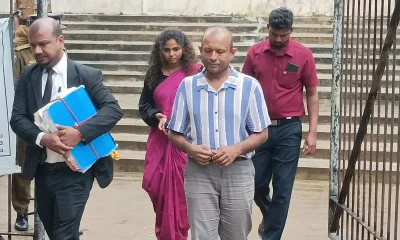
 News6 days ago
News6 days agoGota ordered to give court evidence of life threats
-

 Features6 days ago
Features6 days agoCliff and Hank recreate golden era of ‘The Young Ones’
-
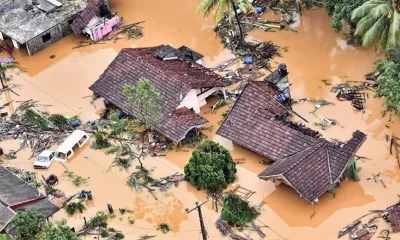
 Features6 days ago
Features6 days agoSri Lanka and Global Climate Emergency: Lessons of Cyclone Ditwah
-
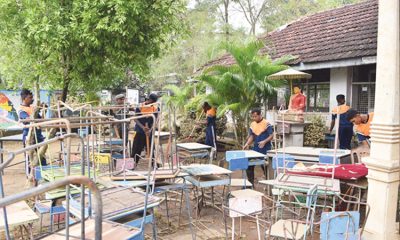
 Opinion7 days ago
Opinion7 days agoA national post-cyclone reflection period?
-

 Latest News6 days ago
Latest News6 days agoSri Lanka squad named for ACC Men’s U19 Asia Cup



















